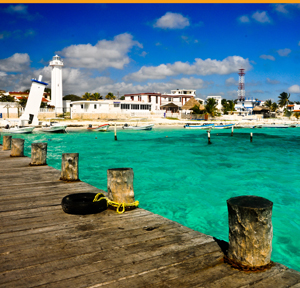Offshore
The Most Attractive Low-Tax Locations - From Central America To Bulgaria

Bradley Hackford, a firm that specialises in international relocation procedures to places with attractive (ie, low) taxes, has created a ranking for the most attractive low-taxed places.
As readers know, this industry can’t get enough of lists,
rankings and league tables of who are considered the biggest and
best firms, most prominent wealth management centres and fastest
growing economies. Bradley Hackford, a
firm that specialises in international relocation procedures to
places with attractive (ie, low) taxes, has added to the fun with
rankings for the most attractive low-taxed places.
It turns out that the Bahamas are number one, followed in
descending order by Andorra; Monaco, Bulgaria and Panama. In
sixth place is Mauritius, followed by United Arab Emirates;
Guernsey, The Cayman Islands, and then, in tenth slot,
Switzerland.
According to Bradley Hackford, it arrived at the rankings by
looking at five areas:
The rate of tax burden for individuals residing in the country;
the country's quality of life; its legal and physical security,
the quality of the economic investment programme developed by the
local government to encourage new residents in the country to
invest, and a country's geographical location, its accessibility,
and its recreational opportunities.
To give some idea of how it thinks, consider this on Bahamas:
“The country's location in the immediate vicinity of the United
States, as well as its tax rate of 0 per cent on individual
income, make the Bahamas the first jurisdiction of choice for
establishing physical and fiscal residence. Moreover, the country
offers an excellent quality of life and political stability that
makes it completely satisfactory. Obtaining residence requires
making a local real estate investment, with a minimum value of
$500,000 (minimum value of $1,500,000 for the accelerated
process).”
Andorra is one of the less well-known places (outside the
specialist fields of those looking at the offshore world) and the
firm notes that this small principality, located between France
and Spain, has “very favourable taxation. It also draws
non-European foreigners, particularly Russians, who appreciate
the country's geographic location as well as its high level of
security. Obtaining residence requires making a minimum
investment of €350,000 in the country and making a deposit of
€50,000”.
Perhaps one of the more unusual – at first sight – of the choices
is Bulgaria, but this also suggests that the list of countries
that tick a lot of the boxes for would-be expats is larger than
is sometimes supposed at a time when there is so much talk of
pressure against “tax havens”. For example, the firm writes:
“There has been a significant trend to relocate to countries in
Eastern Europe. For non-Europeans, it corresponds to the desire
of settling in Europe. For Europeans, the attraction comes from
wanting to remain in Europe while enjoying very attractive tax
rates. Bulgaria has one of the lowest tax rates in Europe.
Non-Europeans living in Bulgaria can then freely travel
throughout Europe. For non-Europeans, the residency process
occurs through an investment of €511,295 in Bulgarian state
bonds. The investment must be maintained for five years.
Europeans do not have to make this investment.”